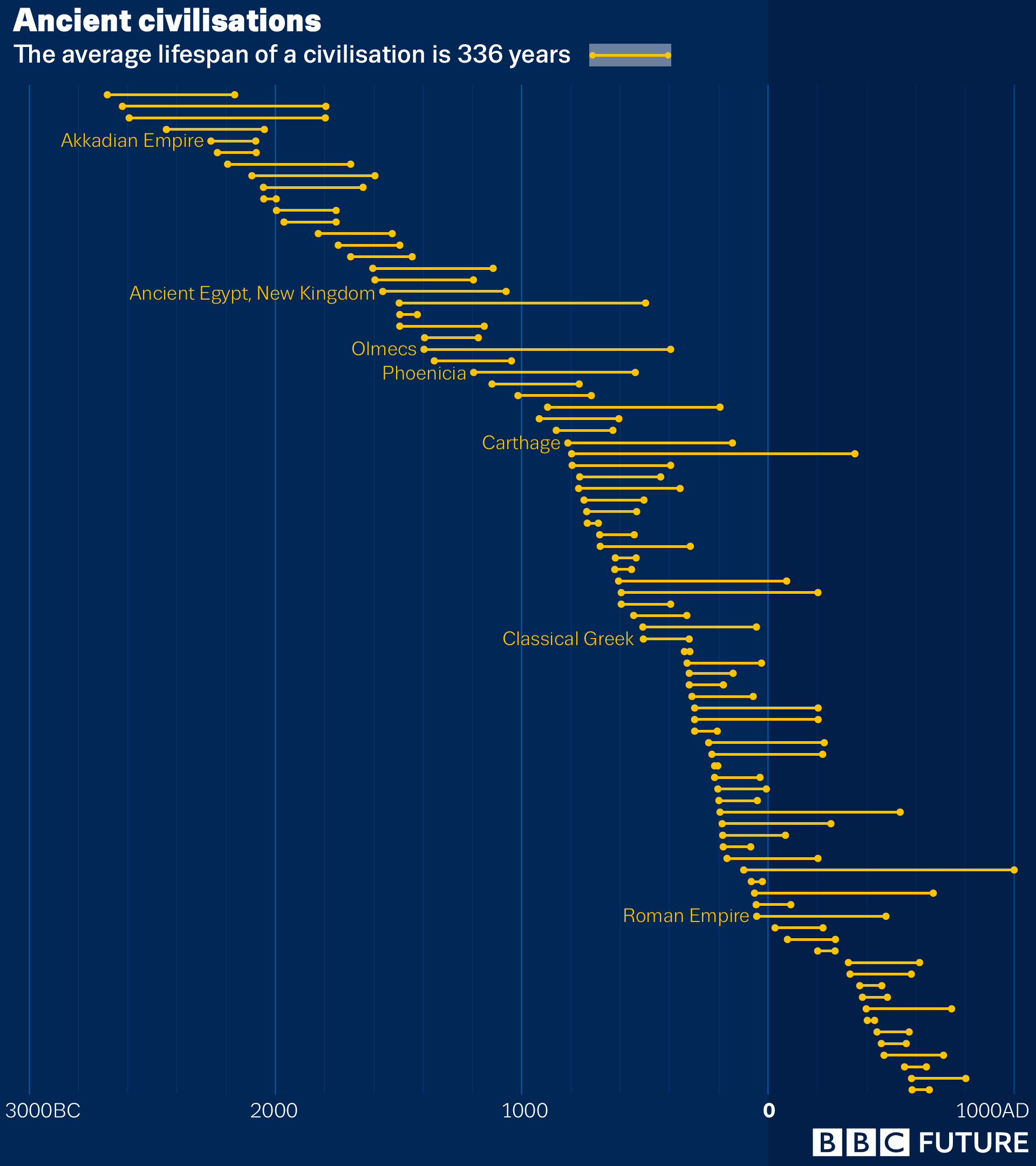|
|
Post by charleshelm on Aug 1, 2019 20:04:33 GMT -5
Noise ordinances and economics hurt the Concorde. Not enough passengers and restrictions on sonic booms. DARPA or NASA are currently working on lanes that minimize the boom to get around this.
Look at the percent of the federal budget dedicated to Apollo and its predecessors versus now...it explains a lot.
|
|
|
|
Post by kemp on Aug 2, 2019 6:56:16 GMT -5
Roman concrete buildings were notorious for falling down because no rebar was used. I believe that in certain marine applications the concrete may last longer in salt water due to the components used, but overall we can construct stronger concrete buildings now.
The lime volcanic ash combination of Roman concrete may have had better binding qualities than say something like Portland cement. Whatever other short comings the material may have had in comparison to some of the concrete mixes used today, in conjunction with the aforementioned reinforcement, it was good enough to last the centuries in some instances, design factors in the construction of buildings certainly played a part of course. For instance, the Pantheon, made from Roman concrete is still standing.  As for the Pyramids, even if our modern day civilisation attempted to replicate them they would be using modern power tools and construction machinery. The Egyptians as far as we know did all of it unplugged, not a single corded masonry /concrete cutting tool was found. |
|
|
|
Post by kemp on Aug 2, 2019 7:25:04 GMT -5
Noise ordinances and economics hurt the Concorde. Not enough passengers and restrictions on sonic booms. DARPA or NASA are currently working on lanes that minimize the boom to get around this. Look at the percent of the federal budget dedicated to Apollo and its predecessors versus now...it explains a lot. It was more cost effective for the major airline companies to be buying Boeing 747's in terms of running costs and profits. The Concorde, until its end, was mostly used by the upper end of the market that could afford to fly in them, about $7000 to $9000 thousand in the late 90's for a round trip from New York to London, comparative price of $12,000 today. I know that Aerion Supersonic, Boom supersonic and spike Aerospace want to bring supersonic travel back in the next few years with Boeing even talking up hypersonic planes travelling at Mack 5. The aim is to make these planes 30 percent quieter and more efficient than the Concorde.  There is a lot of talk these days about what WILL be happening in terms of these new developments, but the what IS, that's a whole different thing, and the reality is that Airbus and Boeing will be ending or semi retiring their largest planes to concentrate on mid range airliners down the track. Early days, but the indicators show that we are heading for a decline in some areas of our civilisation. |
|
|
|
Post by Char-Vell on Aug 2, 2019 7:30:27 GMT -5
what needs to happen is for someone to come up with a way to make dollah$$ in space, that's when space exploration will kick into high gear.
I hear asteroid mining is actually being looked at seriously.
|
|
|
|
Post by sorcerer on Aug 2, 2019 16:59:13 GMT -5
'The Lifespans Of Ancient Civilizations, Compared' 'Based on the calculations of University of Cambridge's researcher Luke Kemp, the average lifespan of ancient civilizations is 336 years:' 
That's a wonderful graph - thanks for posting. I found the link to the article itself here:
I wish the article had mentioned Carrol Quigley (of whose ideas Bart Stewart provides an excellent summary) rather than merely Toynbee, and I don't care for the author's explanations about the fall of civilization either. Sometimes environmental problems do seem to be involved, and in rare occasions the end may come when a stronger empire suddenly discovers a weaker one, but I would say that loss of morale and social cohesion are much more important than any of the other named causes for collapse (and I doubt "inequality and oligarchy" even knocked a single civilization to its knees). |
|
|
|
Post by charleshelm on Aug 2, 2019 19:51:59 GMT -5
Some companies have been formed to exploit asteroids but of course that is a ways out. some asteroids have a high platinum content. But recall what happened to gold values when the New World flooded Europe with gold...
|
|
|
|
Post by kemp on Aug 3, 2019 3:12:50 GMT -5
what needs to happen is for someone to come up with a way to make dollah$$ in space, that's when space exploration will kick into high gear. I hear asteroid mining is actually being looked at seriously. Probably makes more sense than going to Mars, especially when you consider that some of them are near Earth objects. |
|
|
|
Post by kemp on Aug 3, 2019 3:16:12 GMT -5
'The Lifespans Of Ancient Civilizations, Compared' 'Based on the calculations of University of Cambridge's researcher Luke Kemp, the average lifespan of ancient civilizations is 336 years:' 
That's a wonderful graph - thanks for posting. I found the link to the article itself here:
I wish the article had mentioned Carrol Quigley (of whose ideas Bart Stewart provides an excellent summary) rather than merely Toynbee, and I don't care for the author's explanations about the fall of civilization either. Sometimes environmental problems do seem to be involved, and in rare occasions the end may come when a stronger empire suddenly discovers a weaker one, but I would say that loss of morale and social cohesion are much more important than any of the other named causes for collapse (and I doubt "inequality and oligarchy" even knocked a single civilization to its knees). I agree with some of what you have said about the article, that is why I concentrated on the part related to the lifespan of civilisations segment of the study, such as that graph, but not so much on the social aspects such as ‘inequality’. Environmental concerns are one facet that may have some effect on the longevity of a civilisation, and they have also occurred in the past, for instance the movements of a large number of people in Europe and the collapse of the Greenland colony due to a mini ice age in the middle ages. On the subject of inequality, some of the older civilisations had survived for centuries composed of a slave class or with a caste/feudal system as part of their own ideological and spiritual cultures. There is some debate on the labour used to build the Pyramids, but it may have been largely performed by conscripted workers with a loyalty to the pharaohs. ‘Great Pyramid tombs unearth 'proof' workers were not slaves’ www.theguardian.com/world/2010/jan/11/great-pyramid-tombs-slaves-egyptThe Pyramid builders village, a vast community that thrived 4500 years ago.  |
|
|
|
Post by kemp on Aug 3, 2019 4:14:36 GMT -5
From the aforementioned link to the article ’ Are we on the road to civilisation collapse’ ‘People are increasingly specialised and disconnected from the production of food and basic goods. And a changing climate may irreparably damage our ability to return to simple farming practices. Think of civilisation as a poorly-built ladder. As you climb, each step that you used falls away. A fall from a height of just a few rungs is fine. Yet the higher you climb, the larger the fall. Eventually, once you reach a sufficient height, any drop from the ladder is fatal’ Not quite related, but it did remind me of something I had read about the Nordic Bronze Age and how the relatively warmer climate from 2700 BC allowed for a bronze age aristocratic culture with a dense population to thrive in parts of Scandinavia, and that when a change in climate occurred around 800 BC, with wetter and colder climates, a population shift occurred with people moving south and a disruption of the Bronze age civilisation. Small figure of a woman from bronze age Denmark  |
|
|
|
Post by sorcerer on Aug 3, 2019 11:23:21 GMT -5
Yes. Yes, all of that exactly. Also I'd never heard much about Northern Europe during the bronze age. I know they made many dirk-like short swords archaeologists call "rapiers," but that's about all:  |
|
|
|
Post by kemp on Aug 4, 2019 9:07:40 GMT -5
Yes. Yes, all of that exactly. Also I'd never heard much about Northern Europe during the bronze age. I know they made many dirk-like short swords archaeologists call "rapiers," but that's about all:  A little interesting niche in the history of northern Europe between the Nordic Stone Age and the Pre Roman Iron Age. I am a fan of Roman achievements despite some of their excess, cruelty and hypocrisy ( we tend too dislike the Romans because we are more like them then we care to admit ), but you shouldn't believe all of their propaganda about the 'barbarians' of the north. All of these cultures made us what we are today, and if you look at their clothing some of it looked eerily like it came out of the twentieth century. ![]()   ![]()  |
|
|
|
Post by charleshelm on Aug 4, 2019 12:42:02 GMT -5
I am a fan of Rome, the Republic more so perhaps but the achievements of the Empire are not to be lightly dismissed. I know that REH cast Rome as a villain as part of the civilization versus barbarism theme, but Rome put a mark on the world that persists today. Ancient Germanic and Nordic peoples did as well, and through their successors in the Franks set up a new empire that replaced Rome in the West.
Rome lacked the economic engine to field enough troops to keep the empire together. It was a common problem until the two major economic revolutions -- the Agricultural Revolution that increased food production and the Industrial Revolution that increased the production of goods.
Well that's show I see it but I my last University class was a long time ago.
|
|
|
|
Post by kemp on Aug 5, 2019 9:53:56 GMT -5
I am a fan of Rome, the Republic more so perhaps but the achievements of the Empire are not to be lightly dismissed. I know that REH cast Rome as a villain as part of the civilization versus barbarism theme, but Rome put a mark on the world that persists today. Ancient Germanic and Nordic peoples did as well, and through their successors in the Franks set up a new empire that replaced Rome in the West. Rome lacked the economic engine to field enough troops to keep the empire together. It was a common problem until the two major economic revolutions -- the Agricultural Revolution that increased food production and the Industrial Revolution that increased the production of goods. Well that's show I see it but I my last University class was a long time ago. The Roman Empire finally collapsed for a number of reasons, you noted the economic one, but the Romans gave us model for our western civilisation for the last 1500 years. Our love for spectacle, note the similarities between our modern sports stadiums and Roman arenas, love of comfort, need for violence in the form of entertainment, they also had a crime problem in the bigger cities, endemic prostitution, constant building projects, list goes on. The Romans were also big on trying to control piracy in the way we want to get on top of terrorism. Romans also gave us new engineering techniques for the construction of roads, building and bridges, apartments, plumbing and sanitation management, they loved to build constantly, just like us. then there are the laws, calendars and numerals, our very alphabet. They also took ideas from the people's they called barbarians. You are correct when you talk about a mark from all these diverse people. The Celts developed soap, they made the first horseshoes, iron plow, the Romans adopted Celtic chainmail for their own infantry. It's uncanny some of the resemblance between modern western/European civilisation and Rome. I don't think the Romans are quite through with us just yet. I wonder if our fall will parallel that of the Roman one. The Roman civilisation was a mixed bag, not all good or bad, just like us. |
|
|
|
Post by sorcerer on Aug 5, 2019 18:33:28 GMT -5
Yes; I've been arguing for over twenty years that our trajectory has been following that of old Rome.
If anything, I think that I tended to under-estimate the economic and technological angles; America today still has enough momentum to continue producing technological wonders. If the present rate of innovation could be kept up indefinitely, possibly the system could be maintained without end. But there are hard limits to many avenues of technological progress, as Gordan Moore points out in this interview. At some point the underlying decay will become impossible to ignore. When that will be, I don't know. I doubt the end will arrive in the next decade, but I would hesitate to bet on the USA surviving another century. |
|
|
|
Post by kemp on Aug 6, 2019 8:37:09 GMT -5
Yes; I've been arguing for over twenty years that our trajectory has been following that of old Rome.
If anything, I think that I tended to under-estimate the economic and technological angles; America today still has enough momentum to continue producing technological wonders. If the present rate of innovation could be kept up indefinitely, possibly the system could be maintained without end. But there are hard limits to many avenues of technological progress, as Gordan Moore points out in this interview. At some point the underlying decay will become impossible to ignore. When that will be, I don't know. I doubt the end will arrive in the next decade, but I would hesitate to bet on the USA surviving another century. I have a lot of faith in America riding the challenges out. I feel even if the creaking global economy collapses that the US will still survive as a regional player of sorts. Americans are an innovative bunch and they seem to make do with a lot or with a little. Without sounding too corny I think that Americans will just tap back into their collective Americana ( music, folklore, cultural and material, historical and so on ) and go on from that point. I'm an Aussie, but I have met many Americans and I found them to be a good and open people full of enthusiasm in the things that they do. Having said that, I believe that western civilisation will probably have to accept the fact that they will eventually have to move a few notches back, perhaps sober up a little after the heady period in which we bit off more than we could chew. |
|